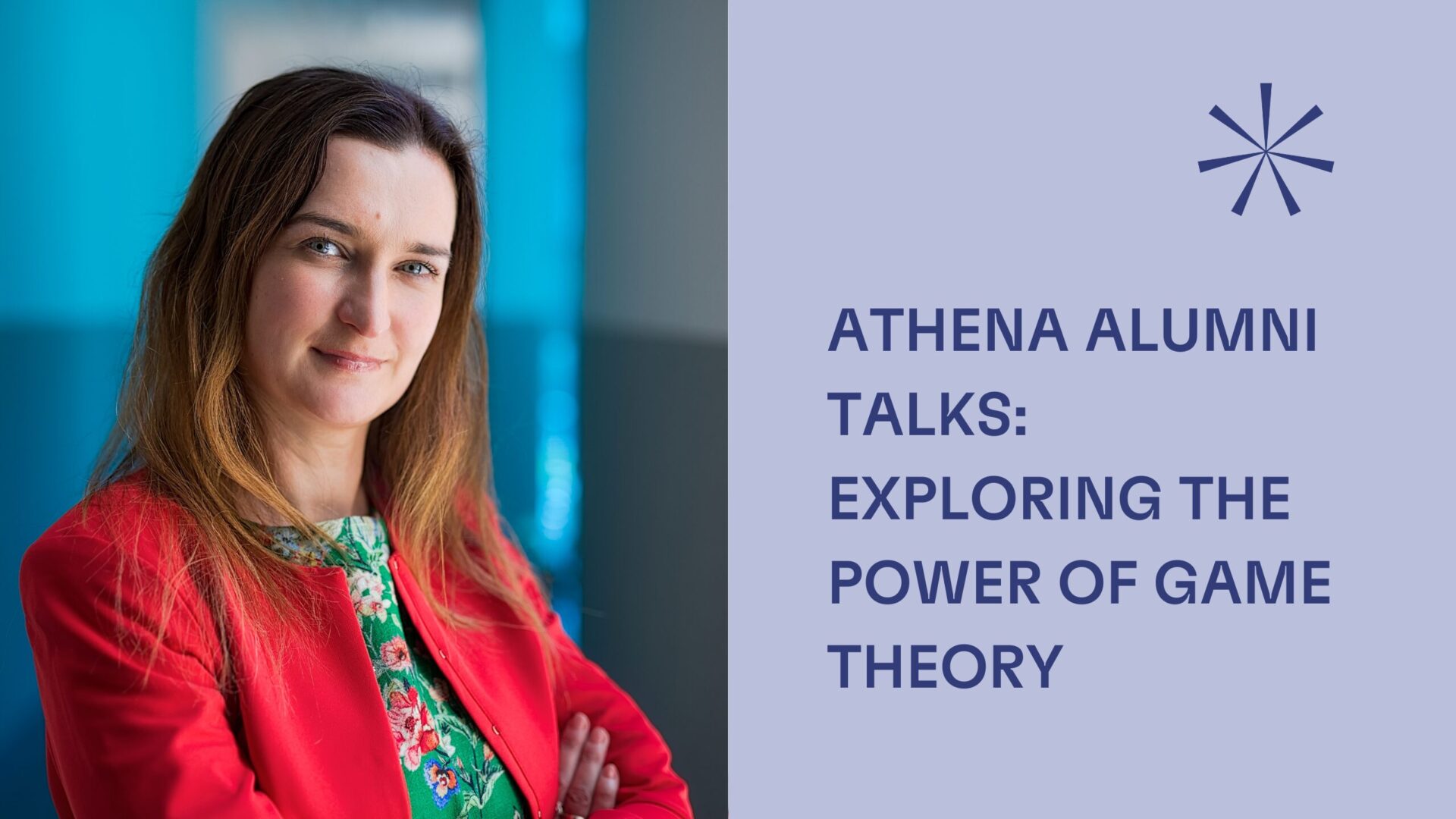In the ATHENA Alliance’s career service-initiated project “Alumni Talks,” ATHENA alumni share their experiences, insights, and knowledge with the academic community. This session delves into game theory – a branch of mathematics and economics focused on the strategic interactions among rational decision-makers.
The guest speaker for this session is Dr. Anna Tatarczak, Vice Dean for Education Quality at the Faculty of Economics, Maria Curie-Skłodowska University. Dr. Tatarczak is a leading figure in applying game theory to logistics and supply chain management. Her research merges mathematical rigour with practical solutions, aiming to enhance cooperation and efficiency in complex, multi-party scenarios. Join Dr. Anna Tatarczak as we delve into the world of mathematics and explore the concepts and applications of game theory.
Applying Game Theory to Real-World Challenges
Dr. Tatarczak’s work focuses on developing frameworks that support horizontal collaboration, coalition formation, and fair profit allocation among companies in supply chains. Her use of cooperative game theory concepts, such as the Shapley value, helps create stable and equitable profit-sharing mechanisms.
For instance, in her work on fourth-party logistics supply chain coalitions, Dr. Tatarczak developed a model to allocate costs and profits fairly among logistics providers. “This model promotes cooperation by ensuring that each participant receives a fair share of the collective benefits, aligning individual incentives with the broader goals of the coalition,” she explains.
Fascination and Business Applications of Game Theory
Dr. Tatarczak is particularly captivated by cooperative game theory’s ability to model coalition formation and ensure fair resource allocation among cooperating entities. This interest translates into practical frameworks that enable companies to pool resources, share costs, and equitably distribute profits.
“By applying cooperative game theory, we can unlock new opportunities for cooperation and joint decision-making, often unattainable through non-cooperative approaches,” Dr. Tatarczak says. Her work demonstrates how concepts like the Shapley value can drive efficiency and sustainability in logistics and supply chain management.
Key Projects and Practical Applications
Dr. Tatarczak’s research encompasses several key projects applying game theory to logistics and supply chain management. A notable example is her work on fourth-party logistics supply chain coalitions, where she developed models using the Shapley value to determine fair and stable allocations of costs and profits among logistics providers.
Additionally, she has explored joint replenishment problems, creating mechanisms for equitable profit sharing among supply chain partners, and employed the modified VIKOR method under intuitionistic fuzzy environments to support decision-making in logistics cooperation. “This analytical tool helps evaluate and select optimal collaboration strategies among multiple parties,” she notes.
Validating Game-Theoretic Models in Practice
For validation, Dr. Tatarczak collaborates closely with industry partners. For example, she worked with a fourth-party logistics coalition to test and refine her game-theoretic framework for profit allocation, using real-world data to ensure practical effectiveness and obtain industry feedback.
She also utilizes simulation studies to evaluate her models under various scenarios, identifying potential improvements before real-world deployment. This approach ensures that her frameworks are robust and applicable in actual business contexts.
Motivation and Future Directions
Dr. Tatarczak is driven by the potential of game theory to foster cooperation and enhance decision-making in complex scenarios. Her passion is fueled by both the intellectual challenge and the real-world impact of her work. Looking ahead, she is eager to continue exploring and advancing the applications of game theory, particularly in promoting sustainable and efficient practices in logistics.
Her involvement in initiatives like the Lublin Science Festival reflects her commitment to inspiring future scholars and disseminating knowledge in this field. “The blend of intellectual stimulation, practical impact, and the opportunity to inspire future scholars fuels my enthusiasm to continually explore and advance the frontiers of game theory research,” she concludes.
Through her work, Dr. Anna Tatarczak exemplifies how the principles of game theory can be harnessed to drive cooperation, fairness, and efficiency in real-world applications, particularly in the critical domain of logistics and supply chain management.
Still curious about game theory? Watch the video recording of Dr. Anna Tatarczak’s ATHENA Alumni Talks discussion here:

